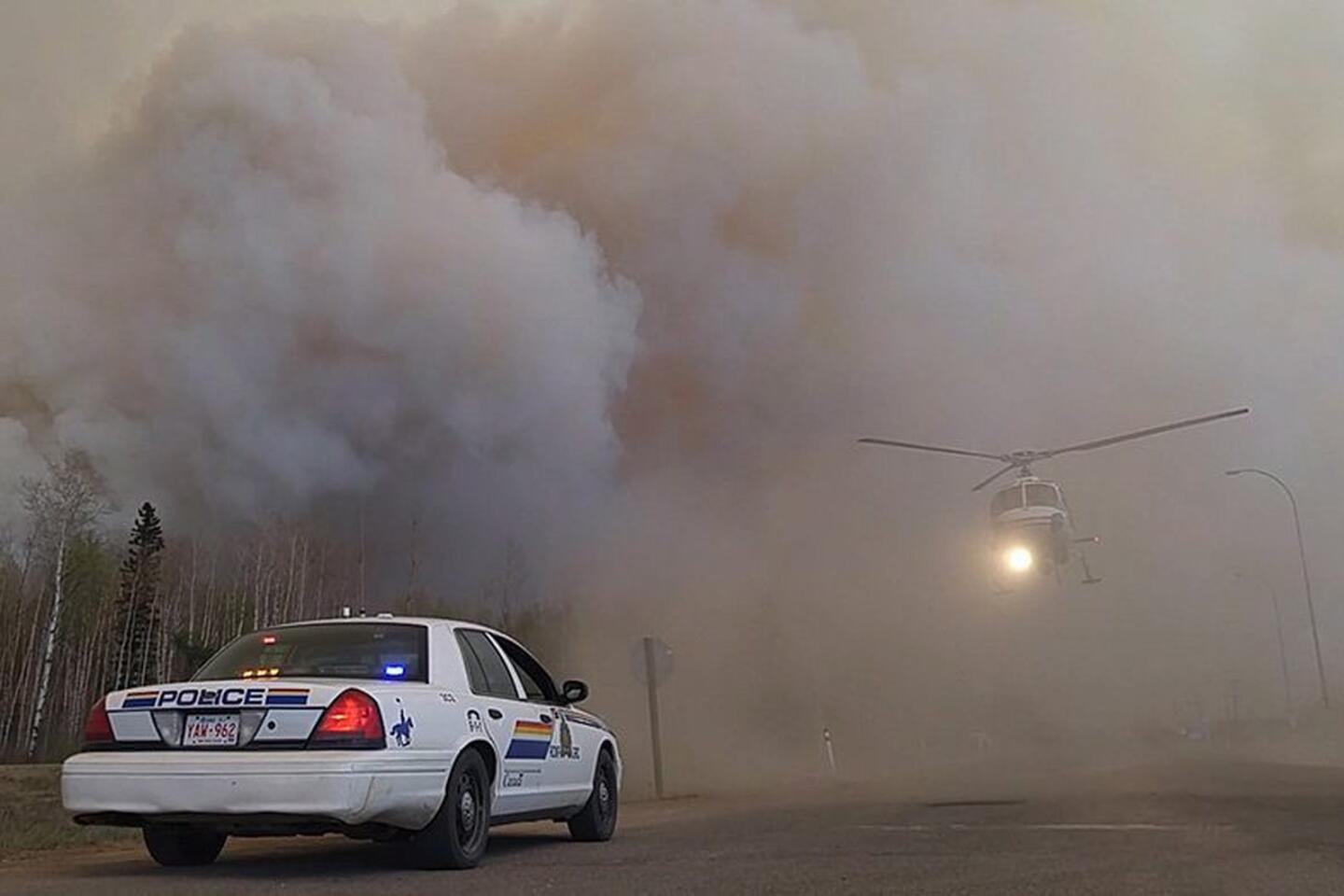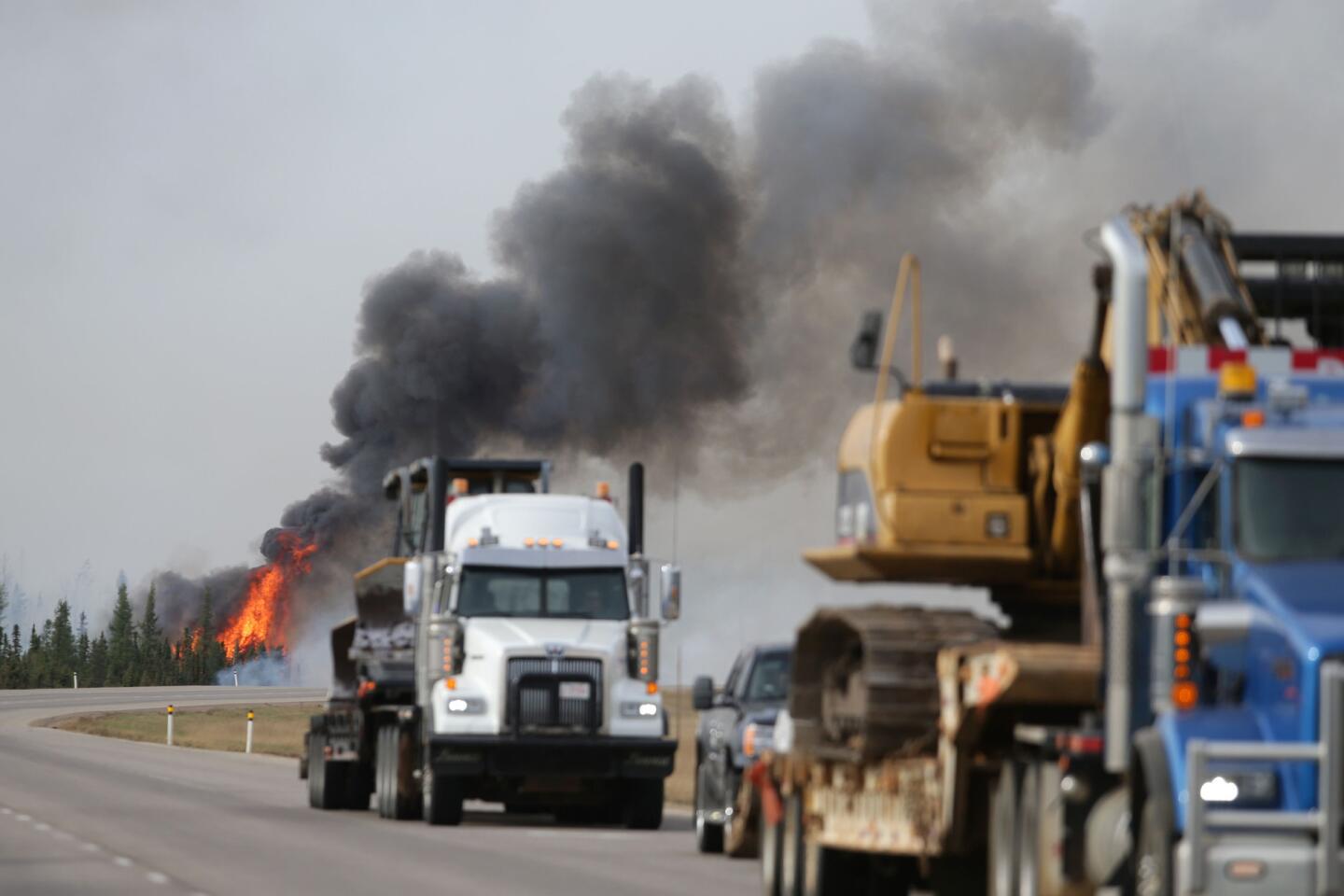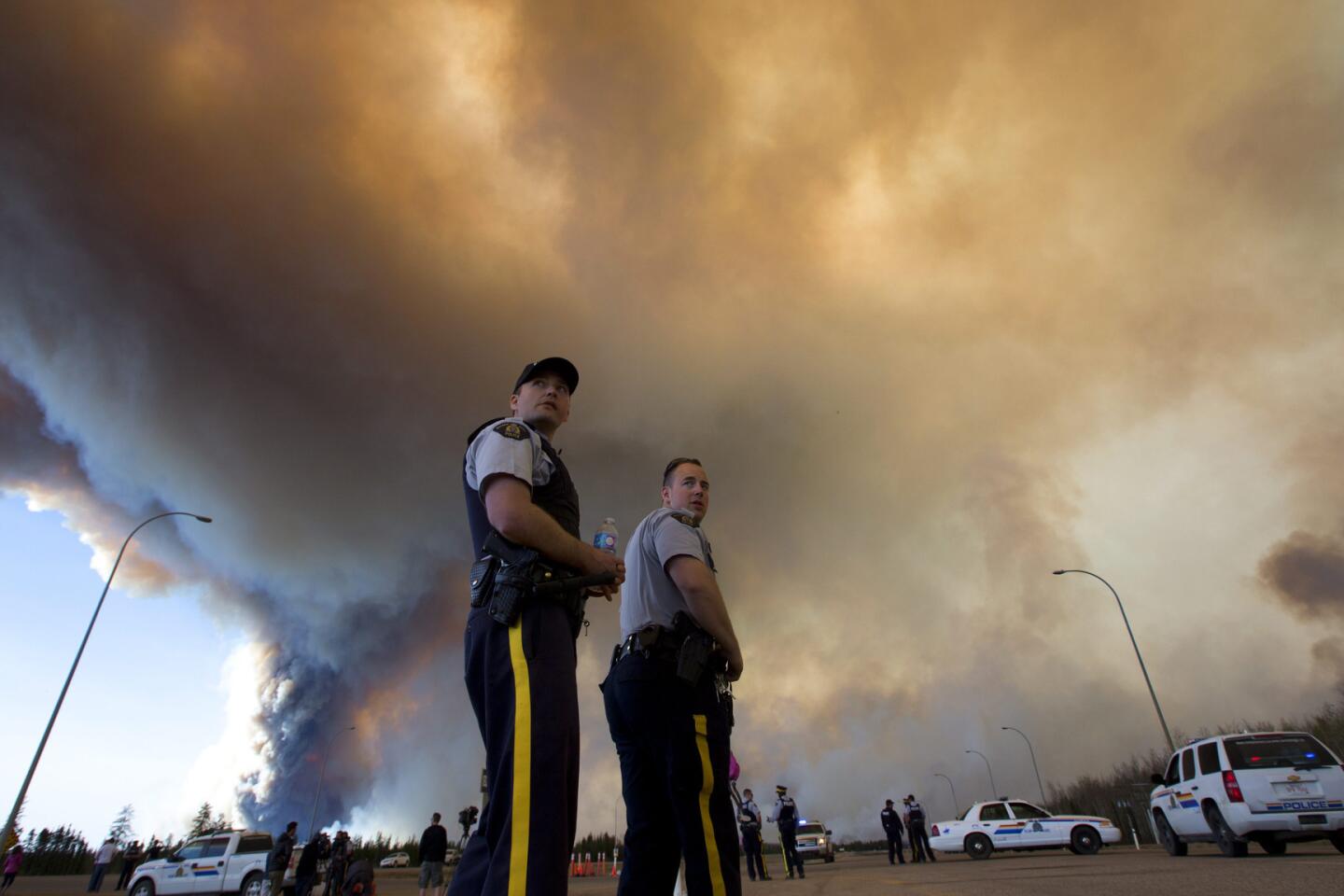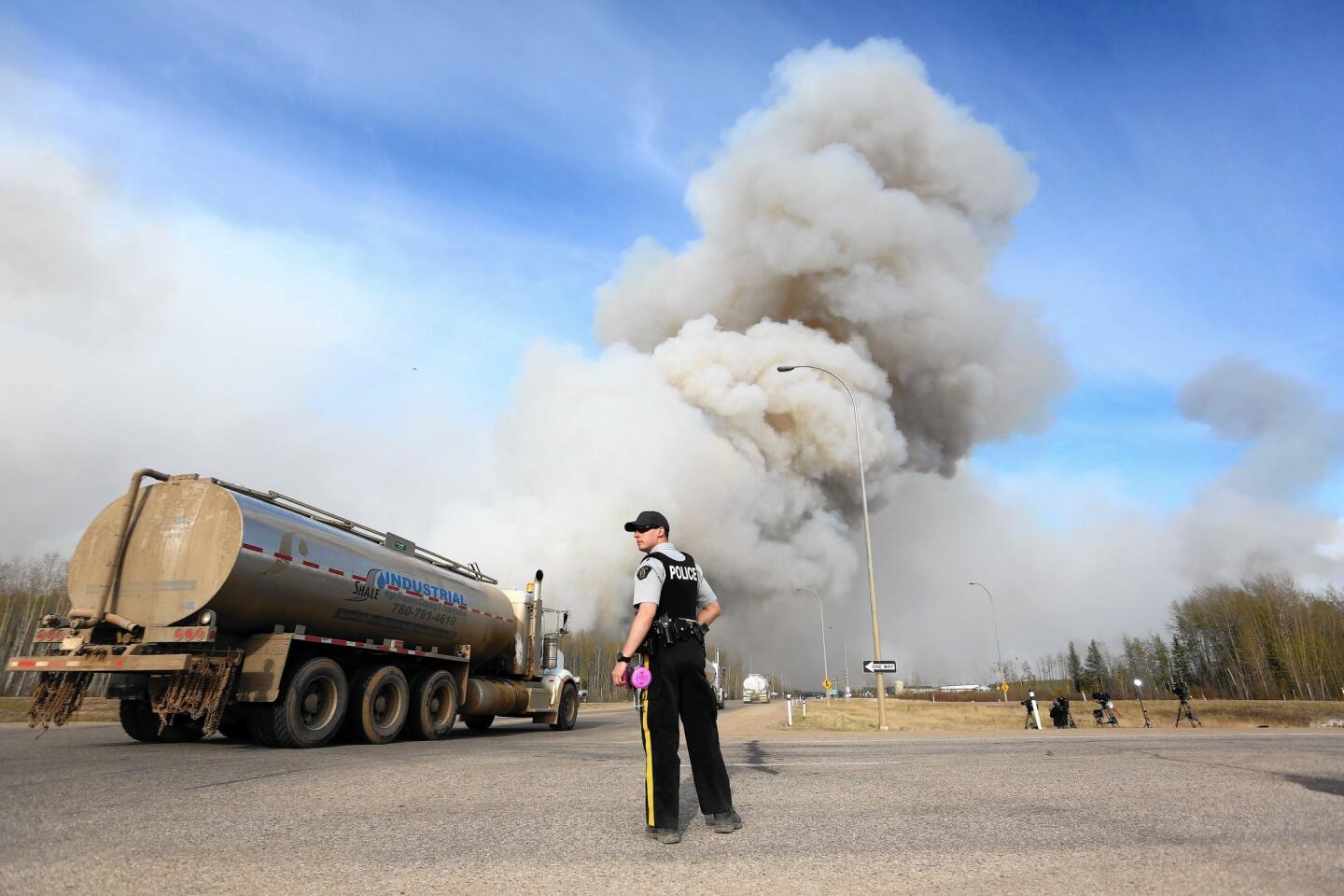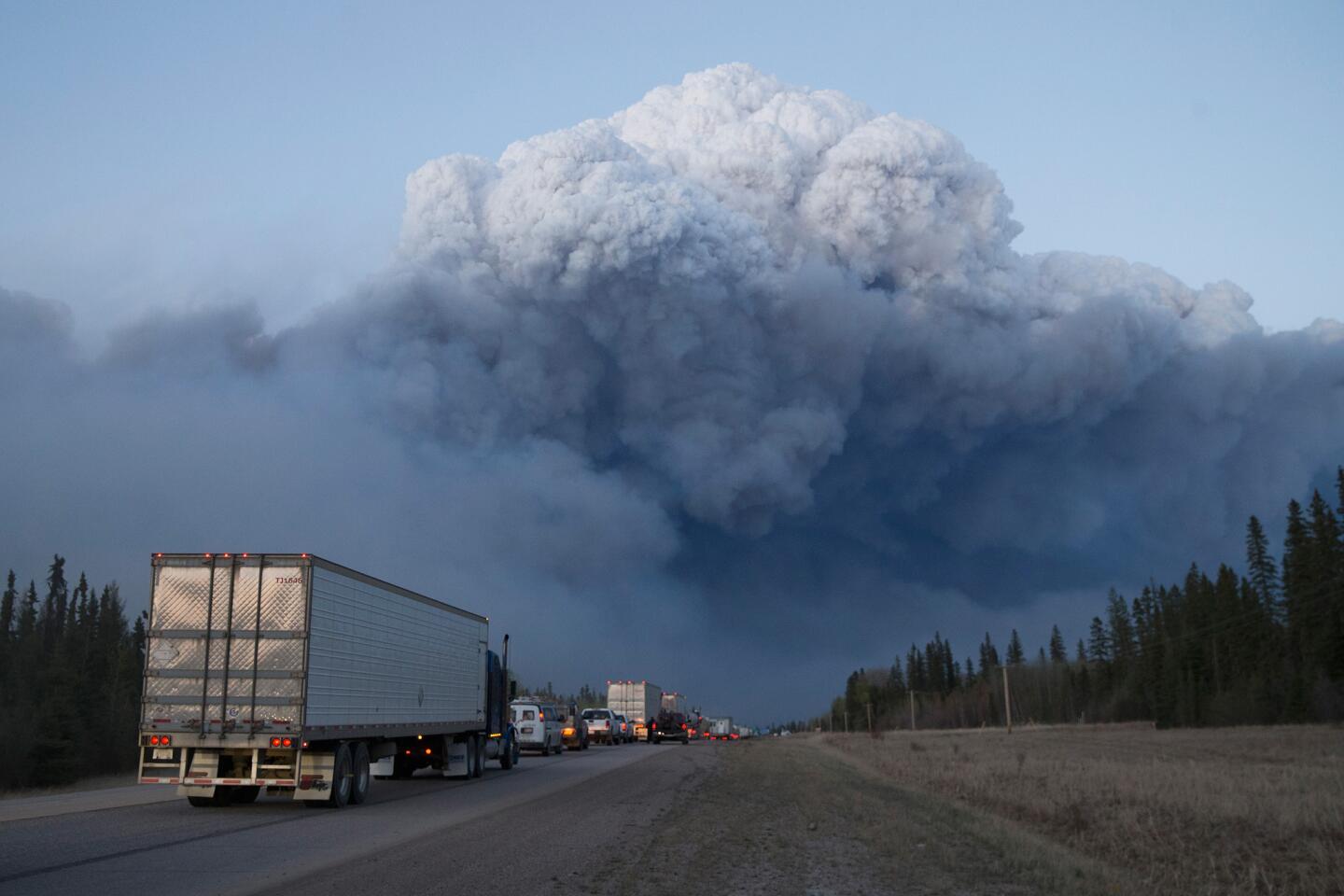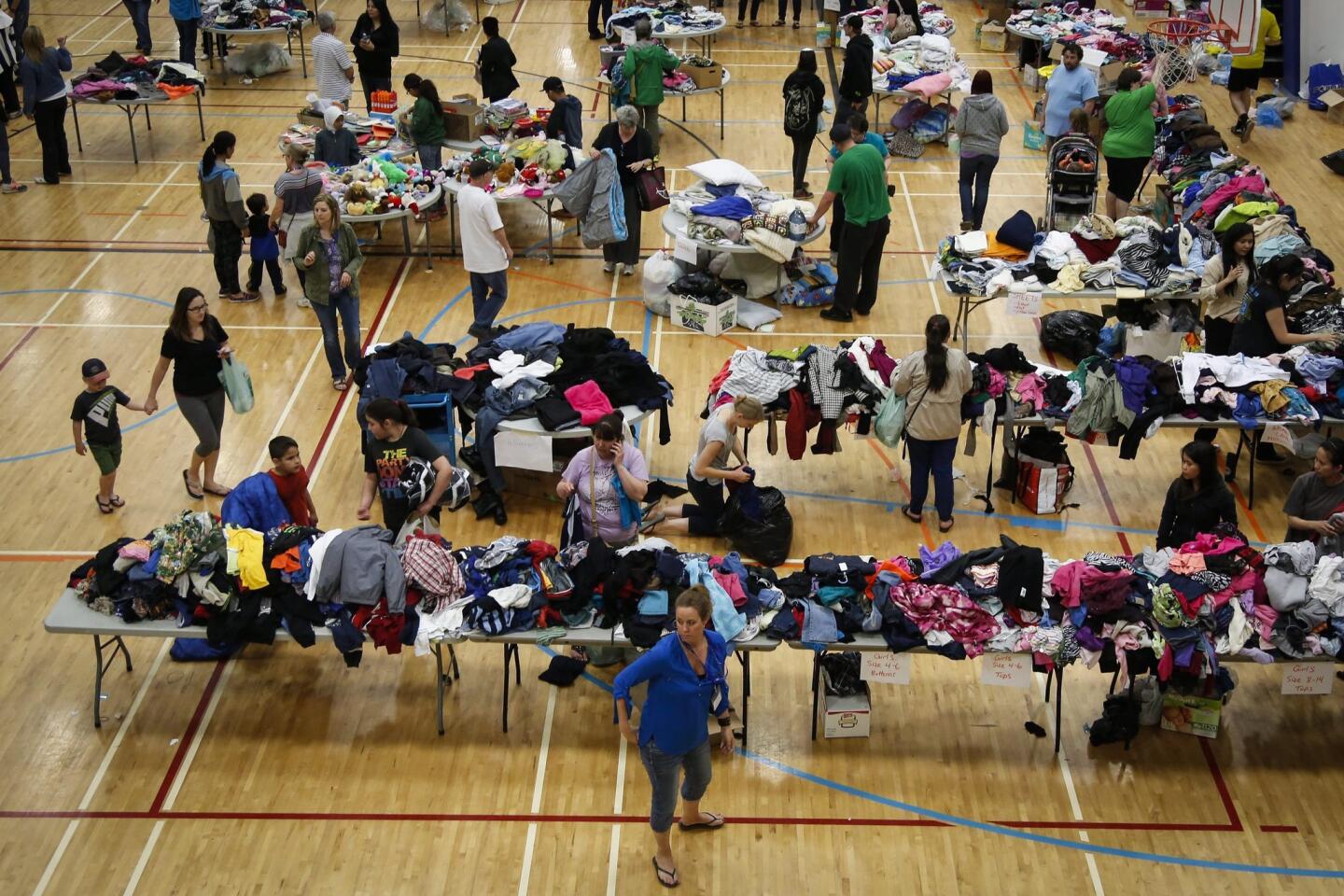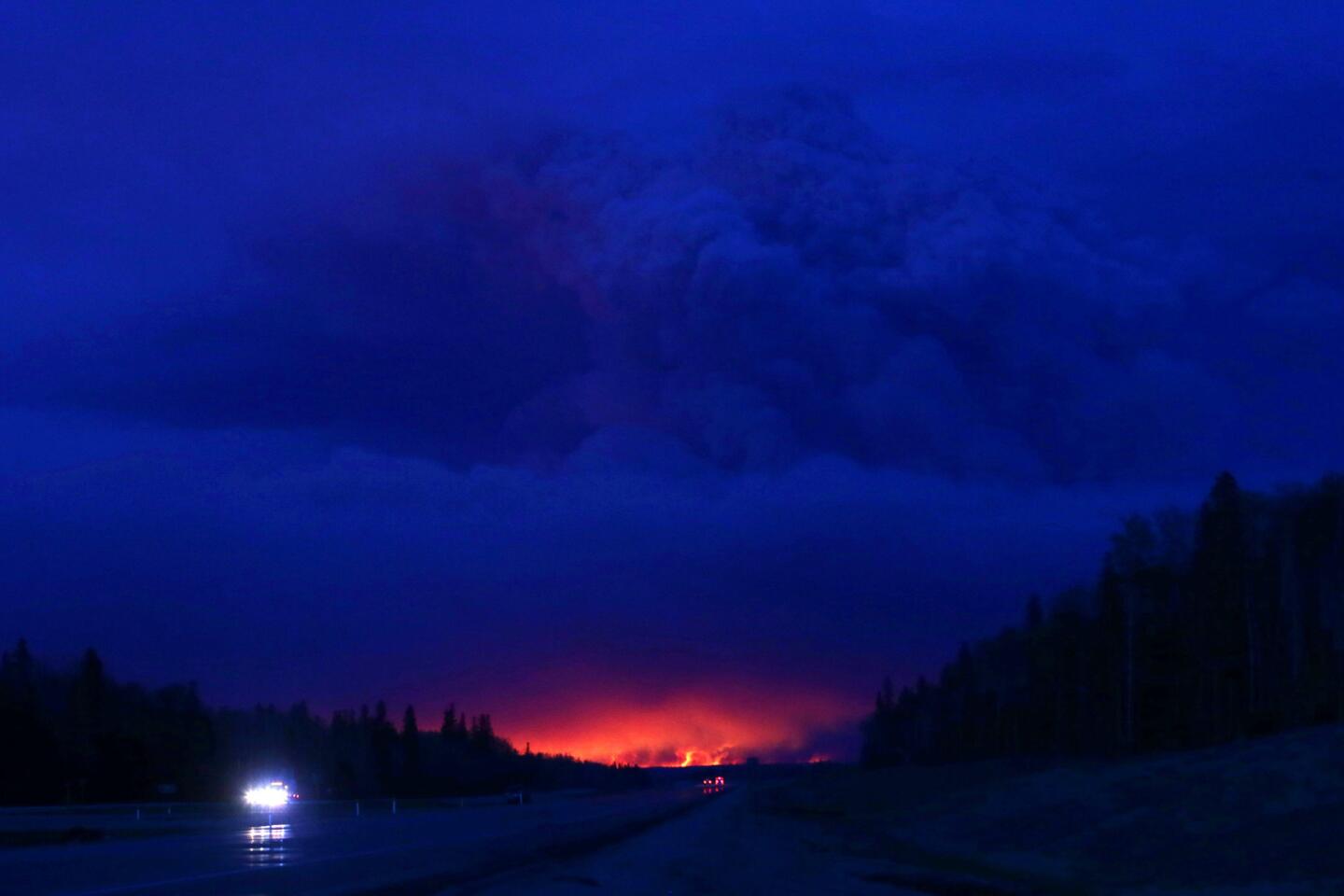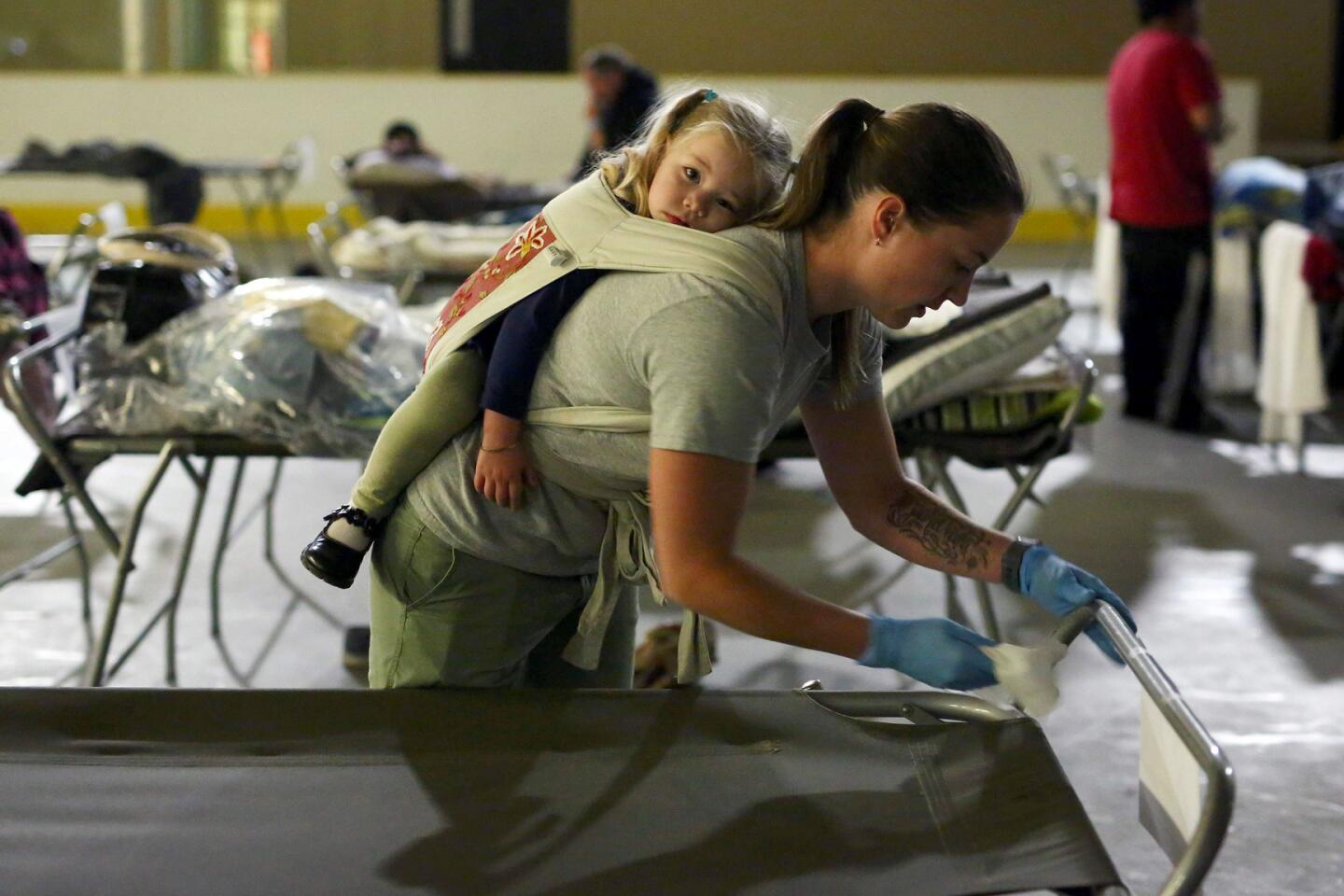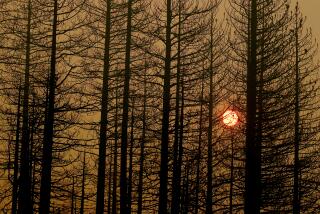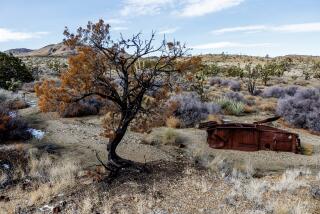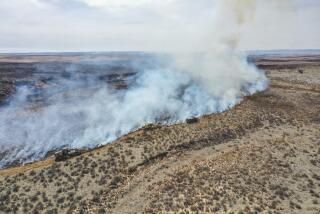It’s like ‘an apocalypse’: Wildfire destroys whole neighborhoods in Canadian oil city
A raging wildfire emptied Canada’s main oil sands city, destroying neighborhoods, as officials here on Wednesday said all efforts to suppress the blaze had failed.
About 88,000 residents evacuated as flames moved into the city, which is surrounded by wilderness in the heart of Canada’s oil sands. No injuries have been reported.
Alberta province’s premier, Rachel Notley, said all 105 patients at the local hospital had been safely airlifted to other care centers. She said the fire had destroyed or damaged an estimated 1,600 structures.
Unseasonably high temperatures combined with dry conditions have transformed the boreal forest in much of Alberta into a tinderbox. Officials estimated the fire at 18,500 acres.
“This is a nasty, dirty fire. There are certainly areas of the city that have not been burned, but this fire will look for them and it will find them and it will want to take them,” Fort McMurray Fire Chief Darby Allen said.
Firefighters were working to protect crucial infrastructure, including the only bridge across the Athabasca River and Highway 63, the only major route in and out of the city. All commercial flights in and out of Fort McMurray have been suspended.
“It’s a possibility that we may lose a large portion of the town,” said Scott Long of the Alberta Emergency Management Agency.
Notley called it the biggest evacuation in the history of the province. Federal Public Safety Minister Ralph Goodale called it one of the largest fire evacuations in Canadian history, if not the largest. “It’s a community of 88,000 people that’s been totally evacuated,” Goodale said. “This is going to take a while to recover.”
Prime Minister Justin Trudeau called the fire “absolutely devastating” and noted climate change is contributing to an increase in extreme weather and fires, but said it’s difficult to establish a direct link.
The Alberta oil sands are the third-largest reserves of oil in the world, behind Saudi Arabia and Venezuela.
Most oil sands projects are well north of the community, and the worst of the flames were on the city’s south side. Allen said he’s not aware of any threat to oil facilities but called the fire a “moving animal.”
The regional municipality of Wood earlier said evacuees who are north of Fort McMurray should stay north because they are safe. Notley said about 10,000 evacuees moved north where oil sands work camps were being pressed into service to house evacuees.
Oil company Shell said it had shut down production at its Albian Sands mining operations, about 60 miles north of the city, so workers can focus on getting families out of the region. Suncor, the largest oil sands operator, said it was reducing production at its regional facility.
Chelsie Klassen, a spokeswoman for the Canadian Assn. of Petroleum Producers, said all large oil sands facilities had emergency crews and plans for forest fires, noting that all personnel would be evacuated and facilities would be properly shut in to minimize the damage. She said 80% of the oil sands was deep underground and can be extracted only through a drilling process. The remaining 20% is minable from the surface and predominantly north of Fort McMurray. She said it can burn under certain circumstances; however, oil sands would burn at a much slower pace considering its composition with sand.
Resident Breanna Schmidt said evacuating almost felt like “an apocalypse.”
“We had to literally drive through smoke and fire, vehicles littered all over the sides of the road, and we had to drive as fast as we could and breathe as little as we could because the smoke was so intense and we could feel the heat from inside the vehicle,” she said.
Former National Hockey League player Doug Sulliman said he could see from his apartment balcony that both sides of the highway south were engulfed in flames and estimated hundreds of homes in the Beacon Hill suburb over the hill were destroyed. “You could hear the pop, pop, pop because of the propane tanks. The fire was just consuming these houses. It just destroyed the whole community,” he said.
He decided the best place to stay was the apartment, but he was forced out three hours later.
“I woke up just in time,” he said by phone. “Smoke had come into the apartment, but not bad. When I opened the door to the hallway it was burning my eyes, and when I went outside it was burning my throat.”
He said that the highway opened and it was bumper to bumper, and that there were many cars on the side of the road because service stations were out of fuel. He said RV campsites were destroyed.
“There was a Shell gas station that blew up and a Denny’s next door. There was nothing but the foundation and it was still smoldering in flames,” he said.
More to Read
Start your day right
Sign up for Essential California for news, features and recommendations from the L.A. Times and beyond in your inbox six days a week.
You may occasionally receive promotional content from the Los Angeles Times.
